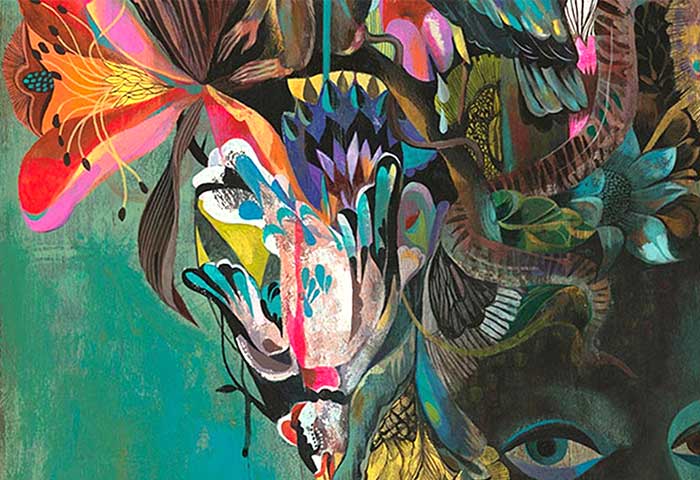[ad_1]
Wassily Kandinsky is the artist responsible for painting the first strictly abstract works. Born in Moscow on December 16, 1866, Mr. Kandinsky grew up in Odessa before enrolling in the University of Moscow. He chose to study economics and law and was very successful in these fields. He was even offered a professorship at the University of Dorpat, but began painting when he turned 30.
Anatomy, life-drawing and sketching were his three painting studies. When he started painting he chose to move to Munich where he studied at Anton Azbe's private school before moving to the Academy of Fine Arts. He returned to Moscow in 1914. Wassily Kandinsky was not happy with the official art theories in Moscow so he chose to return to Germany in 1921 where he taught art and architecture. When the Bauhaus school of art closed in 1933, Kandinsky emigrated to France and became a citizen in 1939. He lived there until his death five years later.
Wassily Kandinsky always loved art. In later years, he would remember being stimulated by and fascinated with color when a child. This love of psychology and color symbolism continued as he grew and he studied folk art of the region. These effects show up in his early works. He was also influenced by the works of Richard Wagner and HP Blavatsky. Blavatsky was a proponent of theosophy which believes that creation is a geometric progression. This is seen by a descending series of triangles, circles and squares. In addition, he was visibly influenced by John Varley and his illustrations.
In Kandinsky's early works, one will also see elements of pointillism as well as Fauvism. He uses a flat, luminescent surface for depth of field and color as an expression of subject matter rather than objective nature. Most of these paintings featured towns and landscapes rather than human figures. The most remarkable exceptions were Riding Couple and Sunday, Old Russia. Intentional disjunction, seen in The Blue Rider, also delineates Kandinsky's early works. Here the viewer participates in creating the artwork. This style was a forerunner of his later works.
Wassily Kandinsky later moved to the use of geometric figures in his works. This is unlike the suprematism and constructivism movements which were popular at the time. When he moved to Paris, he was even more isolated from the general art world. He continued to paint abstracts while others were focused on cubism and impressionism. In his later years, he combined elements seen in his previous works. His two last major works used this technique and were simply called Composition IX and Composition X. With so many techniques used over his lifetime, you may find you love some pieces while disliking others. It's all in the eye of the beholder.
[ad_2]
Source

